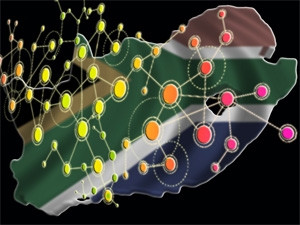
While it is no secret that SA has missed the mark when it comes to broadband penetration and speed, the country needs to be realistic - not dismissing failures, but also not throwing the issue into total depression.
This is according to industry observers and comes in the wake of a report outlining the state of the Internet around the world, which - like many preceding it - paints a bleak picture of the state of broadband in the country.
Akamai's State of the Internet report for the first quarter of 2014 places SA at the bottom of the pile in terms of "high broadband" (over 10Mbps) adoption rates, broadband adoption rates (over 4Mbps), average connection speed and mobile connectivity speed.
Circumstantial analysis
World Wide Worx MD Arthur Goldstuck points out that, in terms of Akamai's report, "SA is not in the 4Mbps space yet, so it is misleading to gauge us against other international countries".
The report says globally, SA is one of two countries to see high broadband adoption rates decline year-on-year. Goldstuck says, however, it is not a case of people abandoning their fast connections, "but rather that their fast connections just got slower ? and slow enough to fall below the 10Mbps threshold that Akamai defines as 'high broadband'. So that decline is in fact a consequence of the (overall finding of) average speeds in SA dropping."
He says, while it is not to say SA is doing a good job, people do need to be realistic - on both the up- and downsides.
Independent telecoms researcher Samantha Perry pins the report against SA's current circumstances, saying raw data without analysis "doesn't say much".
She notes that SA has seen a massive strike this year, which has impacted all sectors of the economy. "SA's economy saw a decline in the first quarter (real gross domestic product dropped 0.6%) and if this continues we will officially be in a state of recession. This impacts across the board and things like high-speed broadband, which are a luxury, are going to be affected."
Government role
Ovum analyst Richard Hurst says the general state of broadband in SA is a "perfect storm" of many factors, but probably the most significant is the general inability of government to create an environment that will enable broadband adoption.
"What we are talking about here is the competitive environment, driving maths and science in schools and making it easier for enterprises to access broadband to compete in the global economy. Other key factors are pricing or cost of broadband and a lack of infrastructure."
Perry says, while government should not - and cannot - be responsible for everything, it should be creating a more enabling environment for broadband uptake.
Economic backdrop
That said, she notes: "Let's be realistic here. We live in a country with over 50 million people and that covers 1.22 million square kilometres - that's three times bigger than Germany and twice as big as France. We have a huge area to cover and rolling out the fibre that enables high-speed broadband costs money."
If SA is to improve its high-speed broadband penetration, she says, costs need to be reduced. "[But to do that] we must either reduce input costs (materials, labour, overheads - all of which have been affected by the strikes and the economic downturn of late) or we can improve efficiencies, which often means laying off staff and automating (which costs initially).
"Would we think SA was going backwards if sales of high-end champagne declined at a time when the economy is declining? No. That adoption has declined must be seen within the broader context. And ideally I'd like to see some analysis on those figures before we start getting upset about anything."
Share